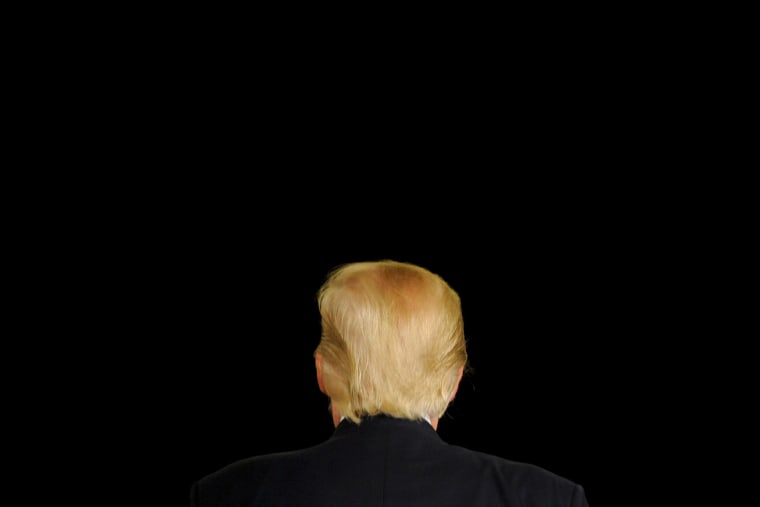The political world was jolted yesterday when Donald Trump said he was considering withdrawing the United States from the North American Free Trade Agreement, better known as NAFTA. It was difficult to know how seriously to take this, but Trump's threat was poised to have considerable economic, political and foreign policy implications.Soon after, the president had a different message: never mind.
President Donald Trump on Wednesday told the leaders of Mexico and Canada that he will not pull out of the North American Free Trade Agreement, just hours after administration officials said he was considering a draft executive order to do just that.The White House made the surprise announcement in a read-out of calls between Trump, Mexican President Enrique Peña Nieto and Canadian Prime Minister Justin Trudeau.
The White House said in a written statement, "President Trump agreed not to terminate NAFTA at this time and the leaders agreed to proceed swiftly, according to their required internal procedures, to enable the renegotiation of the NAFTA deal to the benefit of all three countries."For those who care about the substantive details of this, it's worth noting that the Obama administration significantly renegotiated elements of NAFTA during the process in which the Trans-Pacific Partnership came together. Many have suggested the Trump administration could now use that framework, picking up where the TPP left off, but Canada and Mexico agreed to those changes because they thought they'd have greater trade opportunities with Asian nations once the TPP was implemented.With Trump having killed the TPP, he has a lot less to offer Canada and Mexico now.But let's not miss the forest for the trees. What we have here is yet another example of Trump making a public threat, thumping his chest about some radical move he's prepared to make, only to surrender soon after, in exchange for nothing, without any meaningful explanation for the presidential retreat.The pattern is unnerving. Trump said he was prepared to shut down the government over border-wall funding, then he backed down. He said he was ready to cut off cost-sharing reduction subsidies in the Affordable Care Act, crashing insurance markets, then he caved. The president said his Muslim ban was absolutely necessary to protect domestic security, and then he more or less forgot about it.Trump vowed to unveil a cybersecurity plan. He swore his voter-fraud commission would tackle important work. He'd demand an up-or-down vote in the House on the American Health Care Act. He'd label China a currency manipulator. He'd scrap a refugee agreement with Australia. As we discussed the other day, each of these commitments were either ignored or forgotten by an easily distracted president who, everyone now knows, doesn't always mean what he says.These aren't flip-flops, exactly, so much as they're hollow threats. Trump isn't changing his position; he just likes to pop off regularly on some issue that crosses his mind.What he refuses to appreciate is the fact that an American president says something, the world notices. The more Trump develops a reputation as a guy who talks tough but doesn't follow through on his warnings, the worse it will be for his presidency.
